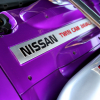Cost Of A Tune - Does This Sound Right?
Announcements
-
Similar Content
-
Latest Posts
-
I believe Unimog is the only vehicle that has it (from the manufacturer). I haven't seen aftermarket permanently connected kits, but I haven't looked either.
-
Ha ha ha, can't overthink when exhausted... Oh how I wish I had that power! I can be absolutely dead set shot, and my brain will still go "we need a good 3 or 4 hours to just think about everything and anything before you may sleep... My biggest thing is making sure I give myself enough sleep. I don't operate on even 7 hours of sleep! I attempt to give my body 9.5hours sleep a night to be able to function. I don't sleep the whole 9.5, but I need to make sure I offer a big window. I also take a single supplement, which is to help with long term health, and fighting inflammation, and I notice it helps massively. Especially me sleeping, and just less "achey" in the body. Have also kicked sugar, and gluten. A majority of people with ADHD don't go well with gluten. It causes a really interesting natural opioid overdose in the brain, which causes bodily issues and sensory issues.
-
Yeah that's what I meant, permanently connected not manual
-
Yep. But typically that's just run a hose down to the tyre while stationary. Oh and the Unimog will automatically air up and air down tyres from the onboard computer for you too.
-
There was a good video somewhere, maybe Kurzgesagt that linked physical activity to ADHD/Anxiety/Insomnia etc. Basically the body WILL spend energy doing something if you don't spend it doing anything physical. It isn't fun, but I personally have noticed I've never been overthinky, or unable to sleep if I'm physically exhausted from doing a lot. The musings around it seem to indicate that this is one of the reasons/mechanism that physical activity improves mental health/wellbeing etc, by more or less not using that 'extra' energy to overthink, be anxious, inflammation, etc. There's also the fact that every obnoxious exerciser ever says it's great and helps which is extremely annoying. Like people who say the same thing about travel being the best thing ever. I mean, they clearly are, but blah. I started doing a LITTLE myself (think 3x15min per week) and honestly did notice the benefits, aiming at life quality when older. Which is sooner than you think. Getting something into your routine that you can actually make a routine has helped me at least. This post brought to you by procrastination between sets.
-









Recommended Posts
Create an account or sign in to comment
You need to be a member in order to leave a comment
Create an account
Sign up for a new account in our community. It's easy!
Register a new accountSign in
Already have an account? Sign in here.
Sign In Now